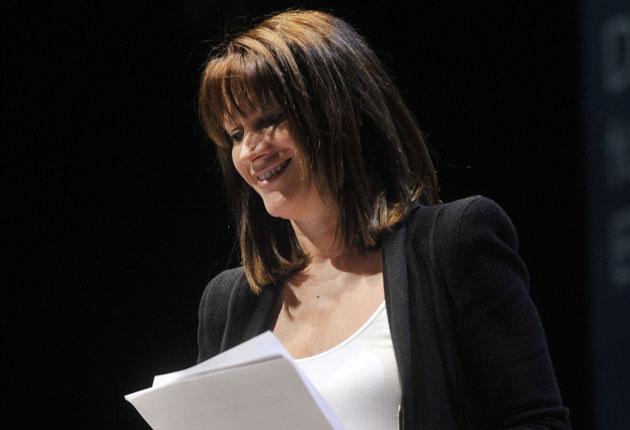“I believe that to deny one group of people the same opportunities offered to another is not only discrimination, but is not fair,” said Britain Equalities Minister Lynne Featherstone at a Liberal-Democratic party conference on Sept. 17.
Featherstone has recently announced that she, with the support of British Prime Minister David Cameron, will begin presenting the idea of incorporating same-sex marriage into British law by the end of the Parliament session in 2015.
Featherstone’s proposal to legalize same-sex marriage is a bold step for Britain, and Cameron — despite his conservative leanings — supports and backs the proposal completely, according to the BBC.
Cameron’s transition from representing conservative values to a more liberal perspective that includes supporting same-sex marriage indicates his movement toward accepting a more liberal perspective in the future.
Featherstone plans to directly address Parliament in March 2012 and bring the topic of same-sex marriage to the political forefront.
“She’s giving people something to look forward to,” said co-advisor of Guilford Pride Justin Shreve. “Here in America, we have no benchmark to look forward to.”
The proposals that Featherstone plans to present beginning in March will not necessarily include a discussion of allowing same-sex marriages to be held in religious centers, but will allow civil marriages to occur for same-sex couples, the BBC reports.
“I think Britain is going about it in a very smart way — enabling same-sex couples to receive their due rights and benefits, without forcing the hand of the religious institutions in the country,” said Kim Parmenter, president of Guilford Pride. “Marriage as a legal institution would afford same-sex couples all the rights and benefits that heterosexual couples get — tax breaks, health benefits, and the like. You don’t get those from a religious institution.”
Currently, Britain allows same sex couples to join in civil unions, but the government does not recognize these unions as marriages, according to the BBC.
“Britain’s move forward from its 2004 Civil Partnership Act to a Civil Marriage Act will grant same-sex couples the right to pledge each other the kind of personal commitment found in traditional marriage,” said Professor of Theatre Studies David Hammond when asked whether he thought religious marriages should be legalized as well as common law marriages. “I believe a church should have the right to choose not to perform same-sex marriages within its faith. What I don’t think any church has the right to do is to demand that the government deny same-sex couples the right to marry outside the church.”
British campaigner for gay rights Peter Tratchell spoke out about the consultations scheduled for next spring. He pointed out that the same consultations had been scheduled previously and fell through.
“I am not convinced that there needs to be any consultation at all,” said Tratchell to the BBC. “The ban on same-sex marriage is homophobic and should be repealed.”
Shreve expressed similar concerns, contextualizing the issue in terms of equal rights for all human beings.
“The conversation about a person’s rights shouldn’t exist because (equal rights) should already be there,” said Shreve.
Equal marriage rights do not currently exist, and yet Britain is moving quickly in the direction of equality for all.
Despite the fact that Cameron supports the proposal by Featherstone to begin hosting consultations in the spring of next year, the consultations will likely face opposition by the Conservative party.
“The difference is that nobody in England is trying to use gay marriage as a wedge or a distraction from others issues,” said Hammond. “I think (opposition is) going to be a non-issue.”
The Liberal Democratic autumn conference represents the movement away from a more conservative mindset in Britain. With the recent legalization of same-sex marriage in New York, more states in the U.S. may feel pressured to follow suit.
“I don’t think it will necessarily push it to a national level,” said Assistant Professor of Political Science Maria Rosales. “The more other countries change, the easier it is for people to say that good things happened. It could speed up the process in the U.S.”
Featherstone’s plans to propose instituting same-sex marriage by 2015 represents a bold step by a government that is currently headed by the conservative party in Britain, but Featherstone seems prepared and fit for the job of legalizing same-sex marriage.

